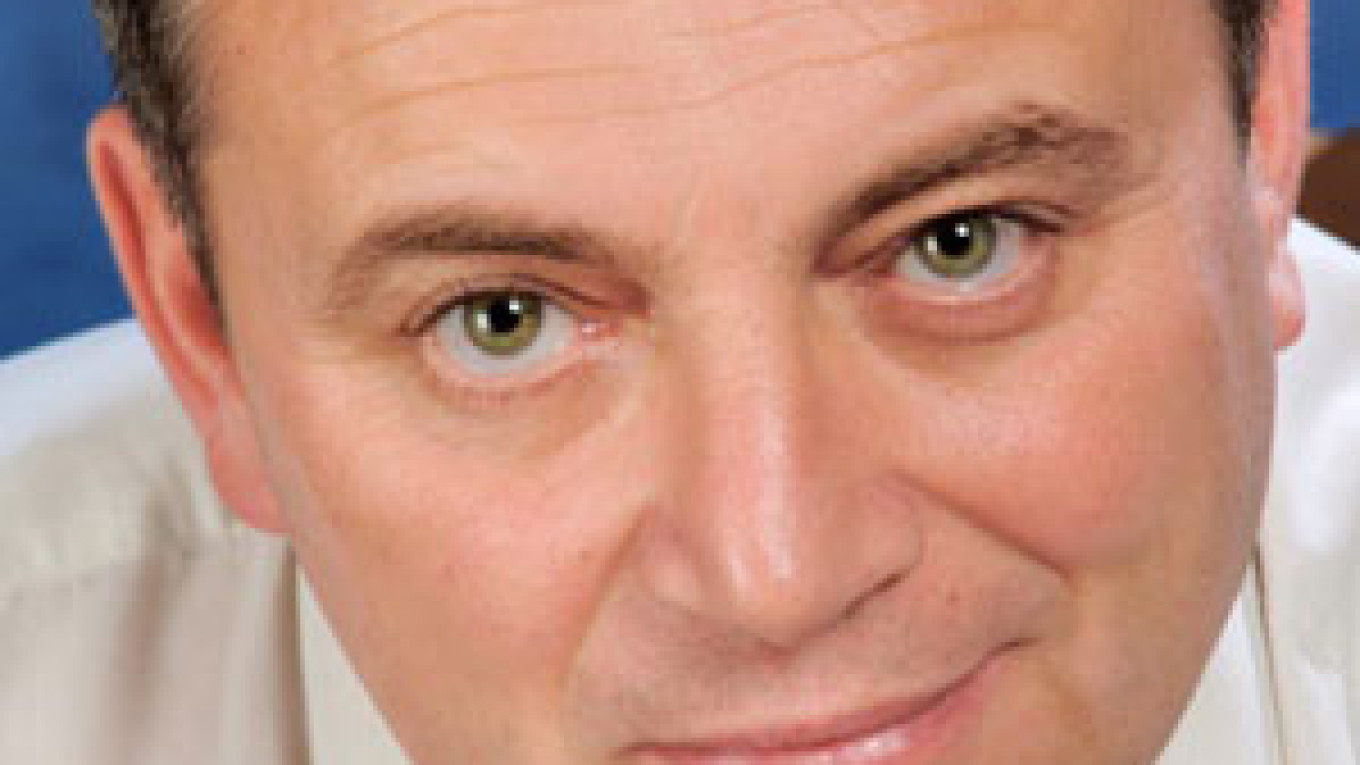Pressure on media in the Krasnodar region is making fair coverage of preparations for the 2014 Sochi Games all but impossible, a media watchdog said Saturday, as the host city's mayor visited Vancouver to receive the Winter Olympics flag.
Local journalists confirmed to The Moscow Times on Sunday that regional and municipal authorities have been trying to keep a lid on dissenting voices. But the Olympics have merely shed light on an existing problem, rather than aggravating it, they said.
State-dependent publications were "press-ganged into supporting the Kremlin policy of 'the games at any cost'" without reporting on environmental and social concerns, "except to brand them as anti-patriotic," Reporters Without Borders said in a report on the situation in the Krasnodar region.
"The region's media have been brought under the thumb of its pro-Kremlin governor, Alexander Tkachyov," the report said.
The group said last year's election of Sochi Mayor Anatoly Pakhomov was not fairly covered in the local press and that financial dependence remains the biggest obstacle to independent journalism in the region.
"It may be a certain Cossack mentality typical of a border region, where historically there is paranoia about enemies all around," said Krasnodar-based journalist Yevgeny Titov, who has worked for two television stations, a radio station and two newspapers since 2004.
All of the publications — except his current employer, Novaya Gazeta — have faced pressure from the authorities, he said.
In 2005, it was common for the local television station to receive calls from the administration requesting a fair weekend weather forecast to help the governor promote tourism, Titov said. Reporters were told to make calls to the studio posing as students and pensioners during call-in sessions with the new Krasnodar mayor in 2004, and the channel was ordered by the mayor's office to give unfavorable coverage to the city's former leader.
Titov refused and was forced to resign after "being persecuted for political reasons at editorial meetings," he said.
Regional authorities keep an official media register of publications that receive advantages in exchange for political loyalty, the report said.
This year, about 100 newspapers, television and radio stations, were on the list, according to a decree on the regional administration web site. Benefits include subsidies on paper and distribution expenses.
The Krasnodar government's press service did not respond to calls Sunday.
The register has turned "into a very effective means of controlling privately owned newspapers," the report said.
But there are plenty of other ways that officials can exert pressure on a privately owned paper.
Krasnodar is a relatively prosperous region, but financing for media is difficult because businessmen are afraid to sponsor papers with an alternative editorial position and advertisers avoid independent publications, said Dmitry Shevchenko, a Krasnodar-based freelance journalist.
"There are big companies in Krasnodar, but their advertising budget goes to papers controlled by the authorities," he said. "Nobody wants problems."
Shevchenko was fired from a local paper last year after authorities complained to his editors over a story he wrote about a woman whose leg was amputated in a city clinic because of medical negligence.
Officials attempt to control journalists' every step, especially during coverage of controversial subjects like Olympics construction or a 2007 oil spill in the straight of Kerch. Border control officers — a branch of the FSB — have cordoned off a section of the shore ever since, keeping television crews and other journalists away from the area most affected by the spill, Shevchenko said.
Sochi-based reporter Semyon Simonov, who works for the Kavkaz Uzel news portal, was turned away when he tried to attend a press event organized in October by Russian Railways, or RZD. The event was to highlight how the state-run company was compensating for the destruction of endangered trees by planting box-tree saplings.
"I registered by sending my information as requested, but my name was not on the list," he said. "In the end, they made me wait about 15 minutes and let in everyone but me."
Kavkaz Uzel, which was founded by rights group Memorial in 2001, has frequently written about environmental problems related to the RZD-led construction of a road from Adler airport to the Krasnaya Polyana ski venues.
Environmentalists said at the time that they saw workers digging saplings out of their natural habitat before the media event.
A Message from The Moscow Times:
Dear readers,
We are facing unprecedented challenges. Russia's Prosecutor General's Office has designated The Moscow Times as an "undesirable" organization, criminalizing our work and putting our staff at risk of prosecution. This follows our earlier unjust labeling as a "foreign agent."
These actions are direct attempts to silence independent journalism in Russia. The authorities claim our work "discredits the decisions of the Russian leadership." We see things differently: we strive to provide accurate, unbiased reporting on Russia.
We, the journalists of The Moscow Times, refuse to be silenced. But to continue our work, we need your help.
Your support, no matter how small, makes a world of difference. If you can, please support us monthly starting from just $2. It's quick to set up, and every contribution makes a significant impact.
By supporting The Moscow Times, you're defending open, independent journalism in the face of repression. Thank you for standing with us.
Remind me later.


